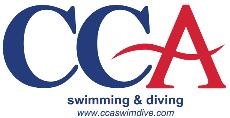Coach Code of Conduct
The purpose of this code of conduct for coaches is to establish common expectations for all members of the CCA coaching staff. It is to be used as a guide to promote a positive team environment and good sportsmanship.
1. At all times, adhere to USA Swimming’s rules and code of conduct.
2. Set a good example of respect and sportsmanship for participants and fans to follow.
3. Act and dress with professionalism and dignity in a manner suitable to his/her profession.
4. Respect officials and their judgment and abide by the rules of the event.
5. Treat opposing coaches, participants, and spectators with respect.
6. Instruct participants in sportsmanship and demand that they display good sportsmanship.
7. Coach in a positive manner and do not use derogatory comments or abusive language.
8. Win with humility and lose with dignity.
9. Treat every athlete fairly, justly, impartially, intelligently, and with sensitivity.
10. Always place the well-being, health, and safety of swimmers above all other considerations, including developing performance.
11. Continue to seek and maintain their own professional development in all areas in relation to coaching and teaching children.
12. Always maintain a professional separation between coach and athlete.
13. Coaches and non-athlete adult members should respect the privacy of athletes in situations such as changing of clothes, showering, etc. Coaches and non-athlete adult members should protect their own privacy in similar situations. Coaches should enter the deck via the grey doors at the diving board end of the pool. Coaches should only enter locker rooms at the request of a parent or an athlete to check on issues within the locker room.
14. Relationships of a peer-to-peer nature with any athletes should be avoided. For example, coaches should avoid sharing their own personal problems with athletes.
15. When a coach touches an athlete as part of instruction, the coach should do so in direct view of others and inform the athlete of what he/she is doing prior to the initial contact. Touching athletes should be minimized outside the boundaries of what is considered normal instruction. Appropriate interaction would include high fives, fist bumps, side- to-side hugs and handshakes.
EMAIL, TEXTING: Coaches may use email, texting to communicate with an athlete. A parent, another coach, or a board member must also be copied.
FACEBOOK, MYSPACE, BLOGS, AND SIMILAR SITES
Coaches may have personal Facebook (or other social media site) pages, but they are not permitted to have any athlete member of CCA join their personal page as a “friend.” A coach should not accept any “friend” request from an athlete. In addition, the coach should remind the athlete that this is not permitted. Coaches and athletes are not permitted to “private message” each other through Facebook. Coaches and athletes are not permitted to “instant message” each other through Facebook chat or other IM method.
CCA has an official Facebook page that athletes and their parents can “friend” for information and updates on team‐related matters.
Coaches are encouraged to set their pages to “private” to prevent athletes from accessing the coach’s personal information.
Any complaints of a coach violating this code of conduct will be brought to the attention of his/her supervisor and/or the club’s board of directors.
CCA Coach: __________________________________ Date: _______________

